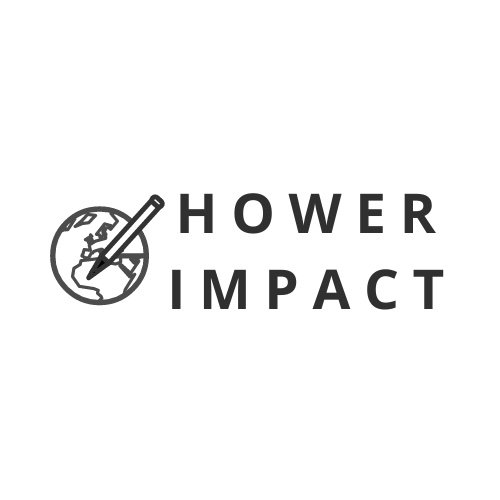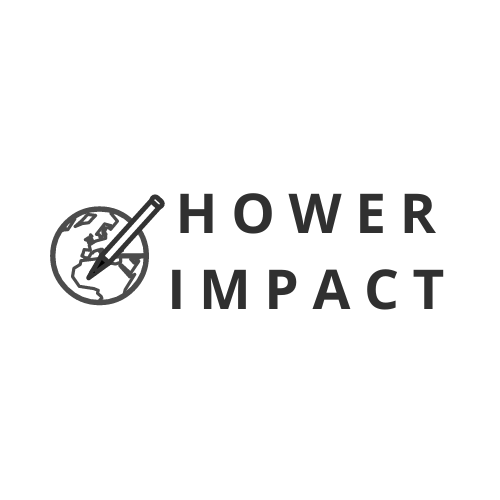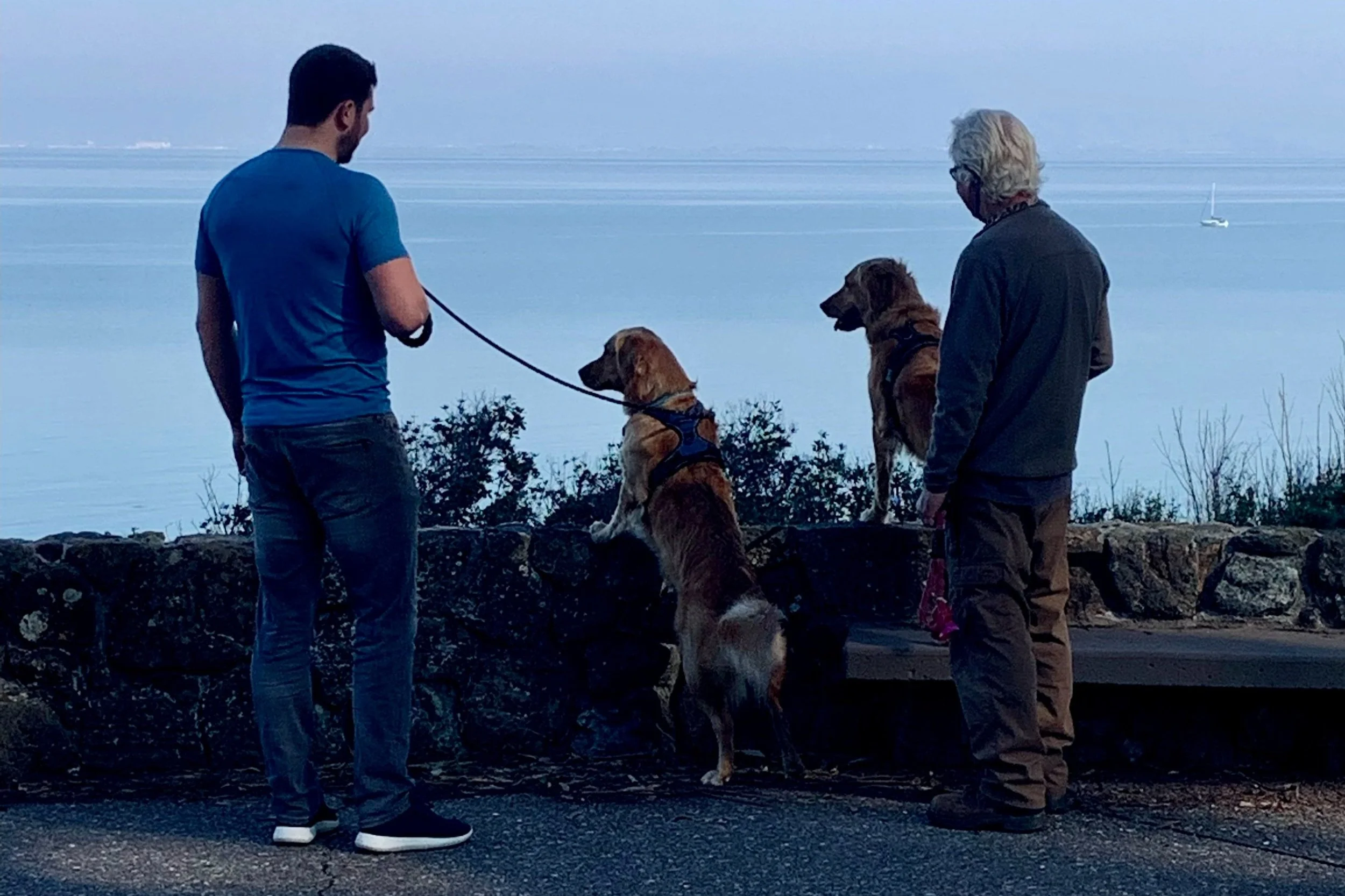All that I’m thankful for
Overlooking the San Francisco Bay with my dad and our dogs in early 2022.
I have a confession to make: sometimes say “thank you” without really meaning it.
Great presentation. Thank you. You got the job. Thank you. I did the dishes. Thank you. Your dog is cute. Thank you. And so on. This doesn’t mean that I’m ungrateful, entitled, or presumptuous. But rarely do I take the time to actually feel thankful — it’s more of a formality.
I’ve never been great at feeling grateful. According to Najma Khorrami M.P.H. in Psychology Today, “some mental roadblocks to gratitude include feeling impatient, having high expectations, or thinking that the subject is too sentimental.” In this, I’m guilty on all counts. My leadership coach tells me that I’m like a dog chasing a bone. I set my sights on something, secure it, and immediately look for something new. Enough is never enough.
That is, until recently. This Thanksgiving, the word “gratitude” means something different to me.
A little over a month ago, I learned that my dad has blood cancer in his bones. Multiple myeloma, as it’s called, is a cancer that forms in a type of white blood cell called a plasma cell. Cancerous plasma cells accumulate in the bone marrow and crowd out healthy blood cells. Essentially, blood cells meant to help fight infection turn against your bones, weakening them and creating painful lesions.
Shortly after my dad’s diagnosis, I came home to help my mom care for him. Despite the doctors knowing exactly what was needed to treat him, we had to wait weeks for my dad to endure test-after-test to make the case to insurance companies that he needed help. When his condition worsened to the point that his pain became unbearable, my mom and I took him to the emergency room.
Later, sitting by my father’s side in the oncology ward, I was overcome with feelings of gratitude. Strange, I know. How could I feel thankful during a time like this? To be fair, gratitude was not my first destination.
It started with shock — that something like this could happen to someone I loved. Next, I found fear — that I would prematurely lose my life’s rock and best friend. This accelerated into anger — at the universe for allowing this to happen and America’s dysfunctional healthcare system that moves like molasses. From there, I stumbled into sadness — about the situation, and the new reality my family faced.
Lying awake during one of the more difficult nights, I thought about a passage I had read in The Prophet by Khalil Gibran:
“When you are joyous, look deep into your heart and you shall find it is only that which has given you sorrow that is giving you joy. When you are sorrowful look again in your heart, and you shall see that in truth you are weeping for that which has been your delight.”
There can be no joy without sorrow — and no sadness without happiness. According to Gibran, “the deeper that sorrow carves into your being, the more joy you can contain.” The tremendous emotional pain I was and am facing watching my dad experience cancer is rooted in the fact that I love that man deeply — and that I have deep well of happy memories with him.
The word “gratitude” comes from the Latin word gratus, which means "thankful, pleasing." Yet gratitude is about more than a feeling of appreciation to someone or something.
As the author Melody Beattie writes:
“Gratitude turns what we have into enough, and more. It turns denial into acceptance, chaos into order, confusion into clarity… it makes sense of our past, brings peace for today, and creates a vision for tomorrow.”
This Thanksgiving, I’m reflecting on the fact that I already have enough. Yet another bone won’t satisfy. Each day I wake up with a healthy body and mind is to be cherished. Each second I’m given with my father and other people (and furry friends) I care for is a gift to be valued.
A few weeks ago, my dad was discharged from the hospital and returned home. Since then, he has begun chemotherapy to eliminate the cancer and treatments to strengthen his bones. His condition has improved dramatically and, while it will be a long and uneven road, the doctors expect him to recover fully. I’m thankful for the wonders of modern science, which has made my dad’s disease into a chronic illness rather than a death sentence. I’m thankful to have a flexible, remote job that allows me to work from my parent’s house and support them in their time of need. I’m thankful for nurses and doctors who have worked tirelessly to help my dad despite operating in an imperfect system. And I’m grateful for the quality time I have enjoyed with my dad — and every additional moment I will get with him.
Happy Thanksgiving. And thank you for the privilege of your time. This time, I really mean it.
The Multiple Myeloma Foundation works to give patients better answers, more precise treatments, and the best possible outcomes for people living with multiple myeloma.If you would like to make a donation to the Multiple Myeloma Foundation, you can do so here.


